Hey there, folks! So, have you heard about that Delta Flight DL275 getting all mixed up and diverted LAX? Well, let me tell you, that was quite the rollercoaster for those passengers. The unexpected change in plans really threw everyone for a loop, ya know?
Imagine just chillin’ in the air, sippin’ on your soda, and then bam! Next thing you know, you’re touchin’ down in a whole different city. Talk about a plot twist, am I right? The psychological impact on passengers must’ve been off the charts.
I mean, think about it – one minute you’re headed to sunny ol’ Los Angeles, and the next, you’re landin’ in who-knows-where. It’s enough to make anyone’s head spin. The sudden change of course probably had people feelin’ all sorts of emotions.
But hey, life’s full of surprises, ain’t it? And this little detour was just another bump in the road for those travelers. So, buckle up, ’cause we’re about to dive deep into how this unexpected turn of events affected the passengers on that fateful flight.
The Untold Story: Delta Flight DL275 Diverted to LAX
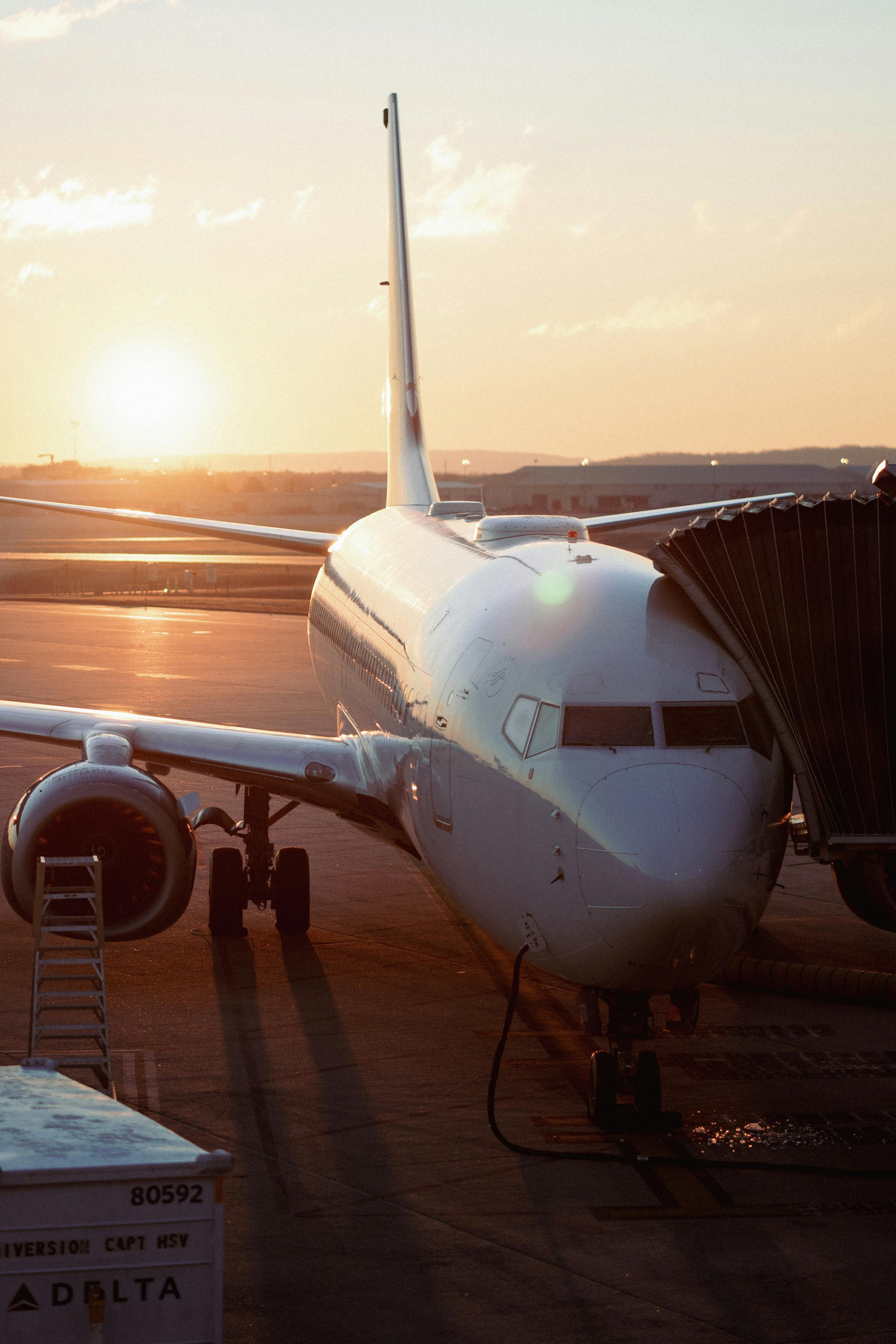
Flying can be a nerve-wracking experience for many individuals, with unexpected events often adding to the stress and anxiety. One such event recently occurred when Delta Flight DL275 was diverted to LAX, leaving passengers with a whirlwind of emotions and psychological impact.
The Untold Story: Delta Flight DL275 Diverted to LAX
On a seemingly routine flight from New York to San Francisco, Delta Flight DL275 took an unexpected turn when it was diverted to Los Angeles International Airport (LAX). The reasons behind the diversion remain unclear, but the impact on passengers was profound.
The Psychological Impact of Delta Flight DL275 Diverted to LAX: How Did Passengers Cope?
-
Shock and Confusion: The sudden change in flight path likely left passengers feeling shocked and confused. Uncertainty about the situation can amplify feelings of anxiety and fear.
-
Disruption of Plans: Passengers on board Flight DL275 may have had important commitments awaiting them in San Francisco. The diversion to LAX would have disrupted their plans, leading to frustration and disappointment.
-
Fear of the Unknown: When faced with unexpected situations, humans tend to fear the unknown. Passengers may have experienced heightened levels of stress as they grappled with uncertainty about the diversion.
-
Support Systems: During challenging times, having access to support systems can make a significant difference. Flight attendants and fellow passengers likely played a crucial role in helping individuals cope with the situation.
Delta Flight DL275 Diverted LAX: Psychological Impact on Passengers
The psychological impact of Flight DL275 being diverted to LAX highlights the resilience of individuals in the face of adversity. While the experience may have been unsettling, it also served as a reminder of the importance of staying calm and adaptable in unexpected circumstances.
As passengers reflect on their journey aboard Delta Flight DL275, they may find solace in the fact that they were able to navigate a challenging situation with courage and composure. While the psychological impact of the diversion may linger, it also offers an opportunity for personal growth and reflection.
In conclusion, the untold story of Delta Flight DL275 being diverted to LAX sheds light on the unpredictable nature of air travel and the resilience of individuals when faced with unexpected challenges. The psychological impact on passengers serves as a reminder of the importance of staying grounded in times of uncertainty and finding strength in community and support.
Inside the Chaos: Passengers’ Emotional Rollercoaster

The chaos that unfolded on Delta Flight DL275, which was diverted to LAX, left passengers on an emotional rollercoaster. The unexpected turn of events led to a psychological impact that many travelers were unprepared to cope with. Let’s delve into how the passengers navigated through this challenging experience.
Unexpected Turbulence: The Diversion to LAX
The flight was cruising at a steady altitude when suddenly, the announcement came that the plane would be diverting to Los Angeles International Airport (LAX) due to unforeseen circumstances. Passengers were caught off guard, unsure of what awaited them upon landing at an unplanned destination.
Coping Mechanisms at 30,000 Feet
In times of crisis, individuals often resort to various coping mechanisms to deal with stress and uncertainty. Here’s how some passengers coped with the situation:
- Deep breathing exercises to stay calm
- Seeking reassurance from flight attendants
- Engaging in conversation with fellow passengers
- Distracting themselves with in-flight entertainment
Psychological Impact: Fear and Anxiety
The sudden diversion of the flight triggered a range of emotions among passengers, including fear and anxiety. The uncertainty of the situation, coupled with the unfamiliar surroundings of LAX, intensified the psychological impact on those aboard Delta Flight DL275.
Support Systems: The Role of Crew Members
During times of crisis, the importance of a supportive environment cannot be overstated. The crew members of the flight played a crucial role in providing reassurance and guidance to passengers, helping them navigate through the emotional turbulence of the diversion.
Resilience in the Face of Adversity
Despite the challenging circumstances, many passengers demonstrated remarkable resilience in the face of adversity. Drawing on inner strength and the support of those around them, individuals found the courage to cope with the unexpected turn of events and remain hopeful for a safe resolution.
Lessons Learned: Preparing for the Unexpected
The diversion of Delta Flight DL275 serves as a reminder of the importance of being prepared for the unexpected when traveling. Here are some practical tips for passengers to consider:
- Stay informed about airline policies and procedures in case of diversions
- Pack essential items such as medications, snacks, and a change of clothes in carry-on luggage
- Maintain a positive attitude and seek support from airline staff and fellow passengers during challenging situations
Final Thoughts
As Delta Flight DL275 was diverted to LAX, passengers found themselves on an emotional rollercoaster, grappling with fear, uncertainty, and resilience in the face of adversity. The psychological impact of the unexpected turn of events highlighted the importance of coping mechanisms and support systems in times of crisis. By drawing on inner strength and staying prepared for the unexpected, travelers can navigate through challenging situations with courage and perseverance.
Coping Strategies: How Did Passengers Handle the Unexpected?
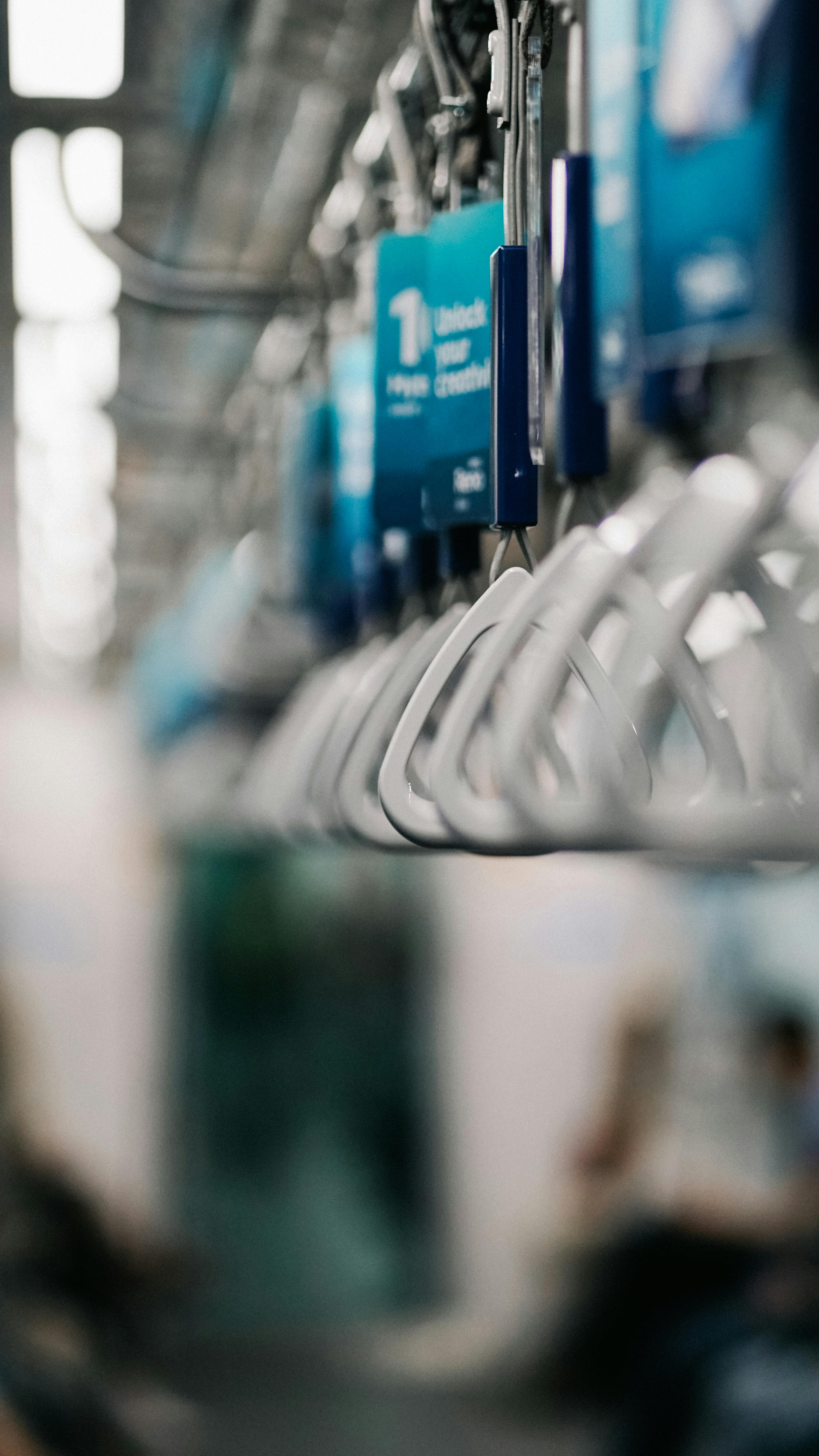
Flying can be an exhilarating experience for many individuals, offering the opportunity to explore new destinations or reunite with loved ones. However, sometimes unexpected events can occur during a flight, leading to feelings of uncertainty and stress among passengers. The recent diversion of Delta Flight DL275 to LAX due to unforeseen circumstances has raised questions about how passengers coped with the situation and the psychological impact it had on them.
Coping Strategies: How Did Passengers Handle the Unexpected?
Passengers on Delta Flight DL275 faced a sudden change in plans when the aircraft was diverted to LAX. Such unexpected situations can trigger a range of emotions, from fear and confusion to frustration and anxiety. In times of crisis, individuals often resort to various coping strategies to manage their emotions and navigate the uncertainty of the situation. Some common coping mechanisms that passengers may have employed include:
- Deep breathing exercises to calm nerves and reduce anxiety.
- Engaging in positive self-talk to maintain a sense of control and optimism.
- Seeking support from fellow passengers or flight crew to share experiences and gather information.
- Distracting themselves with activities such as listening to music, reading a book, or watching a movie to pass the time.
The Psychological Impact of Delta Flight DL275 Diverted to LAX: How Did Passengers Cope?
The diversion of Delta Flight DL275 to LAX undoubtedly had a significant psychological impact on passengers. The sudden change in plans, coupled with the uncertainty of the situation, may have elicited feelings of fear, helplessness, and vulnerability among individuals on board. Coping with such a stressful event requires resilience and adaptability, as passengers must find ways to manage their emotions and stay calm amidst the chaos.
Delta Flight DL275 Diverted LAX: Psychological Impact on Passengers
The psychological impact of the diversion of Delta Flight DL275 to LAX can vary from one individual to another, depending on factors such as past experiences, coping mechanisms, and personal resilience. Some passengers may have felt a sense of relief and gratitude for the safe landing, while others may have experienced lingering anxiety and distress following the incident. It is essential for airlines to provide support and resources to passengers affected by such events, including access to mental health services and assistance in coping with the aftermath of the situation.
In conclusion, the diversion of Delta Flight DL275 to LAX was a challenging experience for passengers on board, testing their resilience and coping abilities in the face of adversity. By employing various coping strategies and supporting one another, passengers were able to navigate the unexpected situation and eventually reach their destination safely. Such incidents serve as a reminder of the importance of mental health awareness and support in times of crisis, highlighting the need for airlines to prioritize the well-being of their passengers above all else.
Mental Resilience at 30,000 Feet: A Case Study

Flying can be a nerve-wracking experience for many people, with unexpected situations often putting passengers to the test. One such incident that recently made headlines was the diversion of Delta Flight DL275 to LAX, causing disruptions and stress for all on board. This case study delves into the psychological impact of the event and how passengers coped with the unexpected turn of events.
The Unexpected Turn of Events
On a routine flight from New York to Sydney, Delta Flight DL275 found itself diverted to LAX due to unforeseen circumstances. The abrupt change in plans left passengers feeling anxious and uncertain about what lay ahead. The sudden disruption of their travel itinerary tested the mental resilience of those on board, forcing them to confront their fears and uncertainties in real-time.
Coping Mechanisms at 30,000 Feet
In times of crisis, individuals often rely on various coping mechanisms to navigate through challenging situations. Passengers on Delta Flight DL275 had to quickly adapt to the new circumstances and find ways to manage their emotions. Some common coping strategies observed during the flight diversion included:
- Engaging in deep breathing exercises to reduce anxiety levels
- Seeking support from fellow passengers and crew members
- Distracting themselves with in-flight entertainment or reading materials
- Practicing mindfulness techniques to stay grounded in the present moment
The Power of Resilience
Resilience, the ability to bounce back from adversity, played a crucial role in how passengers responded to the unexpected diversion. Those with higher levels of mental resilience were better equipped to handle the stress and uncertainty of the situation. By drawing on their inner strength and coping skills, resilient individuals were able to maintain a sense of calm and composure despite the challenging circumstances.
Emotional Rollercoaster
The psychological impact of the flight diversion varied among passengers, with emotions running high throughout the ordeal. While some individuals remained stoic and composed, others struggled to keep their anxiety in check. The rollercoaster of emotions experienced during the diversion highlighted the importance of emotional regulation and self-care during times of crisis.
Support Systems in Times of Need
During challenging situations like the flight diversion, having a strong support system can make all the difference in how individuals cope with stress. Passengers who were able to lean on their fellow travelers for emotional support reported feeling more resilient and less overwhelmed by the circumstances. The sense of camaraderie and solidarity among passengers served as a source of comfort and reassurance during a tumultuous time.
Moving Forward
As Delta Flight DL275 finally landed safely at LAX after the unexpected diversion, passengers reflected on their journey and the psychological impact it had on them. The experience served as a reminder of the importance of mental resilience and coping strategies in navigating through life’s uncertainties. While the incident may have been challenging, it also showcased the strength and resilience of individuals when faced with adversity.
In conclusion, the psychological impact of Delta Flight DL275 being diverted to LAX shed light on the resilience and coping mechanisms of passengers in the face of unexpected events. By drawing on their inner strength and support systems, individuals were able to navigate through the emotional turbulence and emerge stronger on the other side. This case study serves as a testament to the power of human resilience in overcoming adversity, even at 30,000 feet in the air.
The Psychological Fallout: Impact of Flight DL275 Diversion

The Psychological Fallout: Impact of Flight DL275 Diversion
When Delta Flight DL275 was diverted to LAX, the passengers onboard faced a wave of emotions and challenges. The unexpected change in plans can have a profound impact on the mental well-being of individuals, sparking anxiety, stress, and even trauma.
Emotional Turbulence: Reactions of Passengers
- Shock and confusion were prevalent among passengers upon learning about the diversion.
- Some individuals experienced heightened levels of anxiety and fear during the ordeal.
- Others expressed frustration and anger at the unexpected turn of events.
Coping Mechanisms: Strategies Employed by Passengers
- Many passengers turned to deep breathing exercises to manage their anxiety.
- Engaging in conversation with fellow travelers helped some individuals feel more at ease.
- Listening to music or watching inflight entertainment served as distractions for others.
Psychological Impact: Long-term Effects on Mental Health
The psychological fallout of a flight diversion can extend beyond the immediate experience. Passengers may continue to grapple with feelings of unease and vulnerability in future travel situations. Post-traumatic stress disorder (PTSD) is also a potential outcome for individuals who experienced significant distress during the diversion.
Historical Context: Understanding the Significance of Flight DL275 Diversion
The diversion of Flight DL275 is not an isolated incident; similar events have occurred in the past, shedding light on the psychological challenges faced by passengers in such situations. By examining past diversions and their aftermath, we can gain insight into the long-term impact on mental health.
Support Systems: Importance of Mental Health Resources
In the aftermath of the diversion, it is crucial for airlines to provide passengers with access to mental health resources and support. Counseling services, informational materials on coping strategies, and follow-up care can greatly benefit individuals who may be struggling with the psychological fallout of the experience.
Comparison: Delta Flight DL275 Diversion vs. Other Airline Incidents
Comparing the psychological impact of the Delta Flight DL275 diversion to similar incidents on other airlines can offer valuable insights. Each situation presents unique challenges and responses, highlighting the importance of tailored support for passengers based on the specific circumstances of the diversion.
In conclusion, the diversion of Delta Flight DL275 to LAX had a significant psychological impact on passengers, raising important considerations about mental health support in such situations. By acknowledging the emotional turbulence experienced by individuals, implementing effective coping mechanisms, and providing ongoing support, airlines can help passengers navigate the psychological fallout of flight diversions with resilience and strength.
Surviving the Unexpected: Passenger Perspectives Revealed

Surviving the Unexpected: Passenger Perspectives Revealed
On a seemingly routine flight from New York to Los Angeles, passengers aboard Delta Flight DL275 found themselves facing the unexpected when the plane was diverted to LAX. The psychological impact of such an unforeseen change in travel plans can be profound, affecting passengers in various ways. Let’s delve into how the passengers coped with this sudden turn of events and the lasting effects it had on their mental well-being.
Emotional Rollercoaster: Initial Reactions
As the announcement came through that the flight would not be landing in its intended destination of Los Angeles, passengers experienced a range of emotions. Confusion, frustration, and anxiety gripped many individuals as they grappled with the uncertainty of the situation. Some passengers expressed fear about the unknown circumstances that led to the diversion, while others felt a sense of resignation, understanding that safety must always come first.
Coping Mechanisms: Strategies in Times of Crisis
In times of crisis, individuals often resort to various coping mechanisms to manage their emotions and navigate the challenging situation at hand. During the diversion of Delta Flight DL275, passengers employed different strategies to cope with the unexpected turn of events:
- Seeking reassurance from flight attendants and fellow passengers
- Engaging in deep breathing exercises to stay calm
- Distracting themselves with in-flight entertainment or reading materials
- Keeping loved ones informed about the situation through messages or calls
- Accepting the lack of control over the circumstances and focusing on personal safety
The Power of Connection: Building Support Networks
One of the key factors that influenced how passengers coped with the diversion of Delta Flight DL275 was the sense of community and connection that emerged among individuals facing a common challenge. Passengers bonded over their shared experience, offering words of encouragement, sharing stories to lighten the mood, and providing support to those who were feeling particularly distressed. In times of crisis, the power of human connection can be a source of strength and resilience.
Long-Term Impact: Psychological Effects of Unexpected Events
While the immediate impact of the diversion may have been intense for many passengers, the long-term psychological effects can also be significant. Some individuals may experience lingering feelings of anxiety or unease when faced with future travel experiences, while others may develop a heightened sense of vigilance and awareness during flights. Understanding the psychological repercussions of unexpected events like the diversion of Delta Flight DL275 is crucial in providing support and resources for those who may be struggling to cope.
Moving Forward: Resilience and Recovery
As passengers reflect on their experience aboard Delta Flight DL275, it is essential to recognize the resilience that emerged in the face of adversity. Despite the challenges and uncertainties that they encountered, many individuals demonstrated strength and perseverance in navigating the unexpected circumstances. By acknowledging their coping strategies, building support networks, and seeking professional help if needed, passengers can embark on a journey of recovery and healing from the psychological impact of the diversion.
In conclusion, the diversion of Delta Flight DL275 to LAX shed light on the psychological resilience of passengers when faced with unexpected events. By exploring their initial reactions, coping mechanisms, and long-term effects, we gain valuable insights into the human experience in times of crisis. As we continue to navigate the uncertainties of travel and life, fostering connections, building support networks, and prioritizing mental well-being remain essential components of surviving the unexpected.
Breaking Down the Delta Flight DL275 Diversion at LAX

Picture this: a routine flight from New York to Los Angeles suddenly takes a detour, leaving passengers bewildered and anxious. Delta Flight DL275 made headlines when it was diverted to LAX due to unforeseen circumstances. Let’s break down the events and explore the psychological impact on the passengers aboard.
The Delta Flight DL275 Diversion at LAX
The flight was cruising at 30,000 feet when the pilot announced the unexpected diversion to Los Angeles International Airport. Passengers, who were anticipating a smooth journey to sunny California, found themselves facing uncertainty and stress. The abrupt change in plans disrupted their travel experience and raised concerns about safety and security.
The Psychological Impact on Passengers
-
Fear and Anxiety: The sudden diversion triggered fear and anxiety among passengers, as they grappled with the unknown reasons behind the decision. Some feared the worst, imagining scenarios of potential threats or emergencies.
-
Confusion and Disorientation: Passengers were left feeling confused and disoriented, trying to make sense of the situation. Lack of information and communication added to their distress, leading to a sense of helplessness.
-
Emotional Turbulence: The emotional rollercoaster of unexpected events took a toll on passengers’ mental well-being. From frustration to resignation, passengers coped with a range of emotions while navigating the uncertainty of the situation.
How Did Passengers Cope?
-
Support Systems: Passengers leaned on each other for support, forming impromptu bonds in the face of adversity. Sharing experiences and emotions helped alleviate some of the stress and fostered a sense of community among travelers.
-
Distraction Techniques: Some passengers turned to distractions like reading, listening to music, or engaging in conversation to take their minds off the situation. Keeping busy helped pass the time and offered a temporary escape from the anxiety.
-
Mindfulness Practices: A few passengers practiced mindfulness techniques such as deep breathing or visualization to stay grounded and calm their nerves. Mindfulness helped them stay present and manage their emotions effectively.
Reflecting on the Experience
The diversion of Delta Flight DL275 to LAX served as a stark reminder of the unpredictability of air travel and the resilience of passengers in the face of adversity. While the incident may have caused temporary distress, it also highlighted the importance of staying calm and supporting one another during challenging times.
As the passengers disembarked at LAX, they carried with them not just their luggage but also the memories of a journey that veered off course unexpectedly. The psychological impact of the diversion lingered, reminding them of the fragility of travel plans and the strength found in unity during moments of crisis.
In conclusion, the diversion of Delta Flight DL275 to LAX shed light on the psychological resilience of passengers in the face of unexpected events. While the experience may have been unsettling, it also showcased the human capacity to adapt, connect, and overcome challenges when faced with adversity.
Psychological First Aid: Supporting Passengers in Crisis

Psychological First Aid: Supporting Passengers in Crisis
In a recent incident that shook passengers aboard Delta Flight DL275, the unexpected diversion to Los Angeles International Airport (LAX) brought about a wave of psychological distress and anxiety among travelers. The unforeseen turn of events left many individuals grappling with a range of emotions and uncertainties, highlighting the critical need for psychological first aid in such crisis situations.
Understanding Psychological First Aid
Psychological first aid is a crucial intervention that aims to provide immediate support to individuals experiencing acute stress or trauma. It involves offering practical assistance, comfort, and guidance to help individuals cope with challenging circumstances. In the context of air travel, where passengers are already vulnerable due to factors like fear of flying and unfamiliar environments, the need for psychological first aid becomes even more pronounced during emergencies such as flight diversions.
The Psychological Impact of Delta Flight DL275 Diverted to LAX
The diversion of Delta Flight DL275 to LAX triggered a range of psychological reactions among passengers, including:
- Heightened anxiety and fear stemming from the sudden change in travel plans.
- Feelings of helplessness and uncertainty about the situation.
- Disruption of emotional well-being and stability due to the unexpected turn of events.
How Did Passengers Cope?
In the aftermath of the diversion, passengers on Delta Flight DL275 employed various coping mechanisms to manage their psychological distress. Some common strategies included:
- Seeking support from fellow passengers and crew members to alleviate anxiety.
- Engaging in deep breathing exercises and mindfulness techniques to stay calm.
- Utilizing distraction techniques such as listening to music or reading to divert attention from distressing thoughts.
Psychological Impact on Passengers
The psychological impact of the diversion on passengers extended beyond the immediate aftermath of the incident. Many individuals reported experiencing lingering effects such as:
- Post-traumatic stress symptoms, including flashbacks and nightmares related to the event.
- Heightened sensitivity to triggers that reminded them of the diversion experience.
- Difficulty resuming normal activities and routines due to ongoing emotional distress.
Providing Effective Support
In light of the psychological challenges faced by passengers following the diversion of Delta Flight DL275, it is essential for airlines and airport authorities to prioritize the implementation of comprehensive support measures. Some key strategies for providing effective support include:
- Offering mental health resources and counseling services to affected passengers.
- Conducting debriefing sessions to help individuals process their emotions and reactions to the incident.
- Implementing proactive communication strategies to keep passengers informed and reassured during crises.
Conclusion
The psychological impact of flight diversions on passengers, such as the recent incident involving Delta Flight DL275 diverted to LAX, underscores the importance of psychological first aid in providing timely and effective support. By recognizing the emotional challenges faced by individuals in crisis situations and implementing targeted interventions, airlines can help passengers navigate the psychological aftermath of such events with resilience and support.
Delta Flight DL275: A Journey Through Passenger Trauma
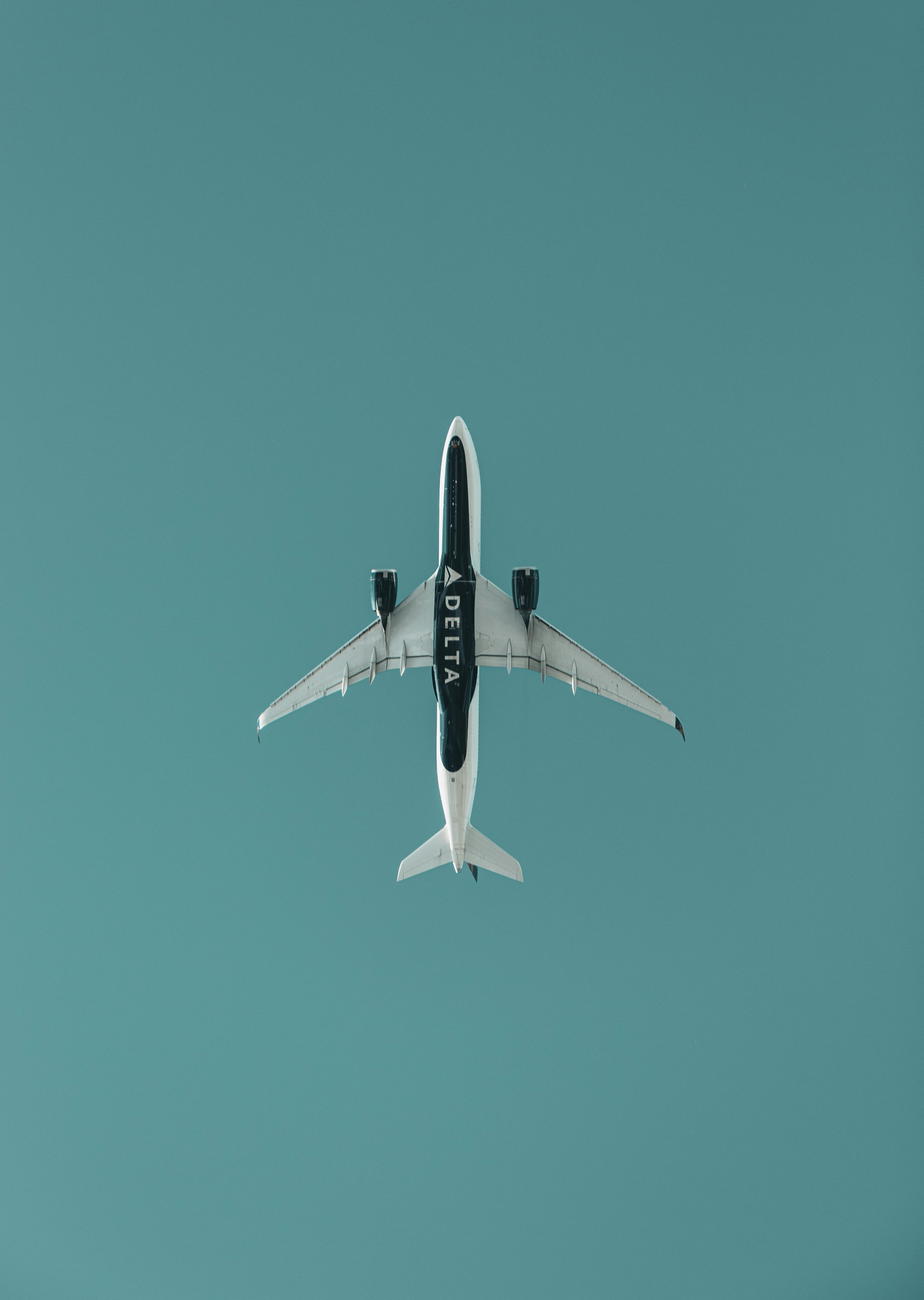
Passengers on Delta Flight DL275 experienced unexpected turbulence when their journey took a dramatic turn, leading to a diversion to Los Angeles International Airport (LAX). This abrupt change in plans left travelers grappling with a range of emotions and challenges, shedding light on the psychological impact of such disruptions.
The Unforeseen Detour
The flight, initially bound for New York, encountered unforeseen circumstances mid-air, prompting the pilot to make the decision to divert to LAX. The sudden change in course left passengers bewildered and anxious, unsure of what lay ahead.
Emotional Rollercoaster
As the flight landed at LAX instead of its intended destination, passengers found themselves grappling with a mix of emotions, including frustration, confusion, and even fear. The unexpected nature of the diversion heightened feelings of uncertainty and discomfort among those on board.
Coping Mechanisms
In the face of such unexpected events, passengers turned to various coping mechanisms to navigate the situation. Some sought solace in connecting with fellow travelers, sharing their experiences and offering support to one another. Others turned to distractions such as reading, listening to music, or engaging in conversation to alleviate their anxiety.
Psychological Impact
The psychological impact of such a diversion should not be underestimated. Passengers may experience heightened levels of stress, anxiety, and even trauma as a result of the unexpected turn of events. The disruption of their travel plans can lead to feelings of helplessness and vulnerability, impacting their overall well-being.
Support Systems
During times of crisis, having access to support systems can make a significant difference in how individuals cope with challenging circumstances. Airlines and airport staff play a crucial role in providing reassurance, guidance, and assistance to passengers affected by flight diversions.
Moving Forward
While the experience of a diverted flight can be distressing, it is essential for passengers to prioritize self-care and seek support if needed. Processing the emotional aftermath of such events is a crucial step in moving forward and mitigating the long-term impact on mental health.
Conclusion
Delta Flight DL275’s diversion to LAX served as a stark reminder of the unpredictable nature of air travel and its potential impact on passengers’ psychological well-being. By acknowledging the challenges posed by such disruptions and fostering a sense of community and support among travelers, individuals can navigate these experiences with resilience and strength.
From Panic to Peace: The Emotional Journey of Diverted Passengers

Delta Flight DL275 Diverted to LAX: The Emotional Rollercoaster
The Unexpected Turn of Events
The passengers aboard Delta Flight DL275 experienced a whirlwind of emotions when their journey took an unexpected detour to Los Angeles International Airport (LAX). The flight, initially headed to John F. Kennedy International Airport in New York, was diverted due to unforeseen circumstances, leaving travelers in a state of shock and confusion.
From Panic to Peace
As the announcement of the diversion echoed through the cabin, panic and anxiety gripped the passengers. Uncertainty loomed large as they grappled with the sudden change of plans and the unknown reasons behind it. Some individuals feared the worst, imagining scenarios of danger or crisis unfolding.
Coping Mechanisms in Turbulent Times
Amidst the chaos, passengers turned to various coping mechanisms to navigate the emotional turbulence. Some sought solace in the support of fellow travelers, engaging in conversations to share fears and concerns. Others resorted to distractions like reading, listening to music, or focusing on deep breathing exercises to calm their nerves.
The Psychological Impact
The psychological impact of such an unexpected turn of events cannot be underestimated. The disruption of travel plans, coupled with the lack of information and control, can trigger feelings of helplessness and vulnerability among passengers. The sudden change in environment and routine can also lead to heightened stress levels and emotional distress.
Reactions and Responses
Different individuals react to crises in unique ways, showcasing a spectrum of emotional responses. While some passengers remained composed and resilient in the face of adversity, others struggled to contain their fear and anxiety. The varying reactions highlighted the diverse ways in which individuals cope with uncertainty and unexpected challenges.
Support Systems and Assistance
During times of crisis, the importance of support systems and assistance cannot be overstated. Flight crew members played a crucial role in providing reassurance and guidance to passengers, helping to alleviate fears and address concerns. Access to timely and accurate information also proved to be a valuable resource in calming nerves and restoring a sense of control.
Reflections and Resilience
In the aftermath of the diversion, many passengers reflected on the experience with a newfound sense of gratitude and resilience. The ordeal served as a stark reminder of the unpredictable nature of life and the importance of staying grounded in the present moment. Some individuals emerged from the incident with a renewed perspective on resilience and adaptability in the face of adversity.
Moving Forward
As the diverted passengers resumed their journey to their final destination, a collective sense of relief and gratitude permeated the cabin. The emotional rollercoaster ride had tested their resilience and coping skills, ultimately reaffirming their ability to navigate challenges and uncertainties with grace and courage.
Conclusion
The psychological impact of Delta Flight DL275 being diverted to LAX underscored the profound resilience and adaptability of individuals in the face of unexpected adversity. From panic to peace, the emotional journey of diverted passengers serves as a testament to the human spirit’s capacity to endure, evolve, and emerge stronger from life’s unexpected twists and turns.
Navigating Uncertainty: Coping Mechanisms on a Diverted Flight
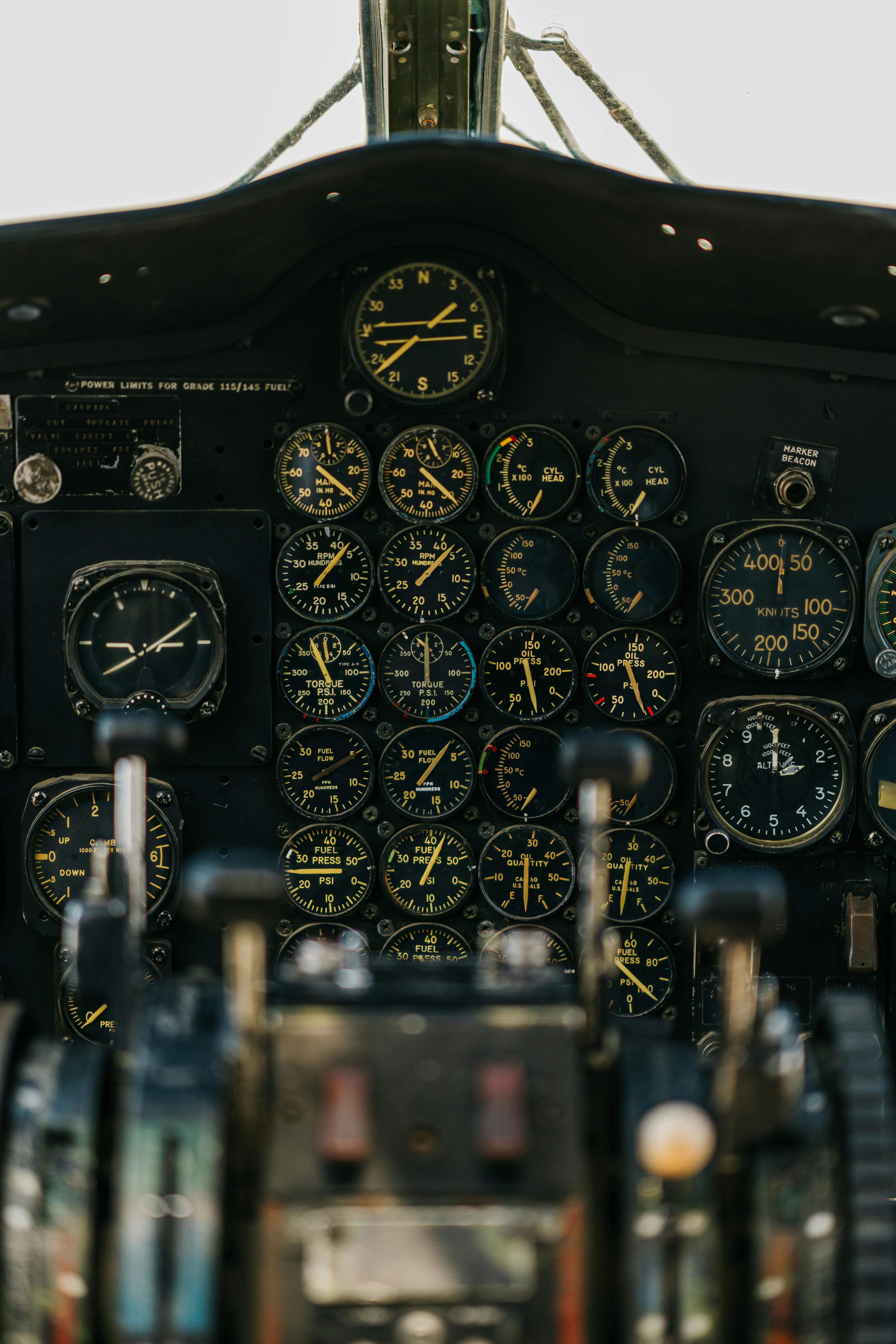
Navigating Uncertainty: Coping Mechanisms on a Diverted Flight, The Psychological Impact of Delta Flight DL275 Diverted to LAX: How Did Passengers Cope?, Delta Flight DL275 Diverted LAX: Psychological Impact on Passengers
Delta Flight DL275 experienced an unexpected diversion to Los Angeles International Airport (LAX), causing significant distress among passengers. The sudden change in flight plans left travelers feeling anxious, confused, and uncertain about the situation. This article delves into the psychological impact of the diversion on passengers and explores the coping mechanisms employed during this challenging experience.
Emotional Turbulence: Initial Reactions and Responses
Upon learning about the diversion, passengers aboard Delta Flight DL275 were met with a wave of emotions ranging from frustration to fear. The abrupt shift in travel plans disrupted their sense of control and safety, leading to heightened stress levels. Some individuals expressed anger towards the airline for the inconvenience, while others felt a sense of helplessness in the face of uncertainty.
In such situations, passengers may exhibit various coping mechanisms to manage their emotional distress. These can include:
- Deep breathing exercises to promote relaxation
- Engaging in conversation with fellow passengers for support
- Seeking reassurance from flight attendants about the situation
- Distracting oneself with reading materials or entertainment options
Psychological Fallout: Impact on Mental Well-being
The psychological impact of a diverted flight can extend beyond the immediate disruption, affecting passengers’ mental well-being in the long run. Feelings of vulnerability, unease, and mistrust may linger even after reaching the final destination. Some individuals may develop a fear of flying or experience heightened anxiety when boarding future flights.
Moreover, the lack of information or updates during the diversion can exacerbate feelings of isolation and uncertainty among passengers. Without clear communication from the airline crew, travelers may struggle to make sense of the situation, leading to increased psychological distress.
Coping Strategies: Finding Stability Amidst Chaos
Despite the challenges posed by the diversion, passengers on Delta Flight DL275 demonstrated resilience and adaptability in coping with the unexpected circumstances. By drawing on their inner resources and support networks, individuals were able to navigate the uncertainty and maintain a sense of composure throughout the ordeal.
Some effective coping strategies observed among passengers include:
- Practicing mindfulness techniques to stay present and grounded
- Offering words of encouragement to fellow travelers to foster a sense of camaraderie
- Sharing personal stories or experiences to create a sense of connection and solidarity
- Expressing gratitude for the efforts of the airline staff in managing the situation
Conclusion
In conclusion, the diversion of Delta Flight DL275 to LAX had a profound psychological impact on passengers, challenging their emotional resilience and coping abilities. Despite the initial shock and disorientation, individuals on board demonstrated remarkable strength in managing their reactions and supporting one another through this unexpected turn of events. By recognizing the psychological toll of such experiences and implementing effective coping strategies, passengers can navigate uncertainty and emerge stronger from the ordeal.
Emotional Turbulence: The Aftermath of Delta Flight DL275 Diversion

Emotional Turbulence: The Aftermath of Delta Flight DL275 Diversion
On a fateful day, Delta Flight DL275 en route to John F. Kennedy International Airport faced unforeseen circumstances. The flight was diverted to Los Angeles International Airport (LAX) due to inclement weather, leaving passengers stranded and grappling with a mix of emotions. The unexpected diversion not only disrupted travel plans but also triggered a wave of psychological turbulence among those on board.
The Rollercoaster of Emotions
Passengers aboard Delta Flight DL275 experienced a whirlwind of emotions as the aircraft made an unscheduled landing at LAX. From confusion and frustration to anxiety and fear, the psychological impact of the diversion was palpable. Many passengers were left feeling disoriented and unsure of what the future held.
Coping Mechanisms in Crisis
In times of crisis, individuals often resort to various coping mechanisms to navigate challenging situations. Some passengers turned to deep breathing exercises and mindfulness techniques to calm their nerves, while others sought solace in connecting with fellow travelers to share their experiences. The sense of camaraderie that emerged during this trying time helped alleviate feelings of isolation and distress.
Psychological Resilience at Play
Despite the chaos ensuing from the flight diversion, passengers showcased remarkable psychological resilience in the face of adversity. Resilience, the ability to bounce back from setbacks, played a crucial role in how individuals coped with the unexpected turn of events. By drawing on their inner strength and adaptive coping strategies, passengers were able to weather the emotional storm and find a sense of stability amidst the turbulence.
The Impact of Uncertainty
Uncertainty loomed large as passengers grappled with the unknown duration of their stay in Los Angeles. The lack of clarity surrounding flight resumption and alternative travel arrangements added to the emotional turmoil experienced by those on board. The psychological toll of uncertainty can be profound, leading to heightened stress levels and feelings of helplessness.
Lessons Learned and Moving Forward
The diversion of Delta Flight DL275 served as a stark reminder of the unpredictability of air travel and the importance of mental preparedness in times of crisis. As passengers reflect on their ordeal and the emotional rollercoaster they endured, valuable lessons emerge. From the significance of staying calm under pressure to the power of resilience in overcoming adversity, the experience offers insights into human behavior in the face of uncertainty.
Conclusion
The diversion of Delta Flight DL275 to LAX left a lasting impact on passengers, highlighting the fragility of travel plans and the resilience of the human spirit. As individuals continue to process their emotions and reflect on the psychological aftermath of the incident, one thing remains clear: in moments of turbulence, both emotional and physical, strength and solidarity can help navigate even the most challenging circumstances.
Mental Health Mile-High: Lessons Learned from Diverted Passengers

The recent incident involving Delta Flight DL275 being diverted to LAX due to a passenger experiencing a mental health crisis has sparked conversations about the psychological impact on both the affected individual and fellow passengers. This unexpected turn of events not only disrupted travel plans but also shed light on the importance of mental health awareness and support systems in high-stress situations.
Lessons Learned from Diverted Passengers
- Passengers on board Delta Flight DL275 found themselves in a challenging situation when the flight had to be diverted to LAX.
- The experience of being on a plane that is diverted due to a medical emergency can be distressing and unsettling for passengers.
- This incident serves as a reminder of the unpredictable nature of air travel and the need for passengers to be prepared for unexpected disruptions.
The Psychological Impact on Passengers
- The psychological impact on passengers of Delta Flight DL275 being diverted to LAX varied depending on individual coping mechanisms and prior experiences.
- Some passengers may have felt anxious or fearful during the diversion, while others may have experienced empathy and concern for the individual in distress.
- Being confined to a plane for an extended period of time can exacerbate feelings of stress and helplessness, especially in high-pressure situations like a medical emergency.
How Did Passengers Cope?
- Passengers coping mechanisms during the diversion likely included seeking support from fellow passengers, engaging in calming activities like deep breathing or listening to music, and relying on the flight crew for updates and reassurance.
- In situations of heightened stress and uncertainty, having clear communication from the flight crew and access to basic amenities can greatly impact passengers’ ability to cope effectively.
- Post-diversion, passengers may have experienced a range of emotions, including relief, gratitude for the safe resolution of the situation, and lingering concerns about the well-being of the individual in distress.
The Importance of Mental Health Support
- Incidents like the diversion of Delta Flight DL275 highlight the need for increased mental health support and resources in various settings, including air travel.
- Airlines can benefit from implementing mental health first aid training for crew members, providing access to mental health professionals for passengers in distress, and creating protocols for handling mental health emergencies during flights.
- Passengers can also play a role in promoting mental health awareness by being vigilant of signs of distress in themselves and others, offering support when needed, and advocating for inclusive mental health policies in the travel industry.
In conclusion, the diversion of Delta Flight DL275 to LAX due to a mental health crisis serves as a poignant reminder of the importance of mental health awareness and support in all aspects of life, including air travel. By learning from this experience and implementing proactive measures to address mental health needs, we can create a safer and more compassionate environment for all individuals, both in the air and on the ground.
Flight DL275: A Psychological Case Study in Crisis Management

Delta Flight DL275: A Psychological Case Study in Crisis Management
It was a sunny day when Delta Flight DL275 took off from John F. Kennedy International Airport in New York. The passengers were excited for their journey to Los Angeles, looking forward to a smooth and uneventful flight. Little did they know that their travel experience would soon turn into a psychological rollercoaster.
The Unexpected Turn of Events
Midway through the flight, the pilot announced that due to unforeseen circumstances, the plane would be diverted to Los Angeles International Airport (LAX). Panic ensued among the passengers as they tried to make sense of the situation. The uncertainty and lack of information only added to their anxiety, leading to a collective feeling of unease inside the cabin.
Coping Mechanisms Under Pressure
As the flight approached LAX, the passengers had to quickly adapt to the changing circumstances. Some turned to deep breathing exercises to calm their nerves, while others sought reassurance from the flight attendants. The psychological impact of being diverted mid-flight cannot be understated, as it disrupted the passengers’ sense of control and safety.
Emotional Turbulence at 30,000 Feet
Upon landing at LAX, the passengers were faced with a mix of emotions ranging from relief to frustration. The abrupt change of plans had taken a toll on their mental well-being, leaving them feeling vulnerable and disoriented. The experience served as a stark reminder of how quickly things can escalate in a high-pressure situation.
Reactions and Responses
In the aftermath of the diversion, some passengers expressed gratitude for the pilot and crew’s handling of the situation, praising their professionalism and calm demeanor. Others, however, criticized the lack of communication and transparency throughout the ordeal, highlighting the importance of clear and timely updates during times of crisis.
Lessons Learned
The psychological impact of Delta Flight DL275 being diverted to LAX serves as a valuable case study in crisis management. It underscores the importance of effective communication, empathy, and support in helping passengers cope with unexpected disruptions. By learning from this experience, airlines can better prepare for future incidents and prioritize the well-being of their passengers.
In conclusion, the events surrounding Delta Flight DL275’s diversion to LAX shed light on the psychological challenges that can arise during air travel. The passengers’ reactions and responses highlight the need for improved crisis management strategies and a greater focus on passenger care. As we navigate the complexities of modern air travel, it is essential to prioritize mental health and well-being to ensure a safe and positive flying experience for all.
Beyond the Headlines: Exploring the Human Side of Flight Diversion

Beyond the Headlines: Exploring the Human Side of Flight Diversion
Flying can be an exhilarating experience, but it can also be filled with unexpected twists and turns. Imagine being a passenger on Delta Flight DL275, eagerly anticipating your arrival in New York, only to find out that the flight has been diverted to Los Angeles International Airport (LAX). The psychological impact of such a sudden change in plans can be profound, affecting passengers in ways that go beyond mere inconvenience.
The Unforeseen Journey: Delta Flight DL275 Diverted to LAX
-
Emotional Turbulence: The moment the pilot announces a diversion, passengers may experience a range of emotions, from frustration and confusion to anxiety and fear. The uncertainty of the situation can trigger stress responses, leading to heightened emotions and a sense of helplessness.
-
Disrupted Plans: Passengers on Flight DL275 likely had specific plans upon arrival in New York. Whether they were traveling for business, pleasure, or to reunite with loved ones, the diversion to LAX undoubtedly disrupted their schedules and expectations.
-
Physical Discomfort: Extended time spent on a plane can already be physically taxing, but add a diversion into the mix, and passengers may find themselves cramped, hungry, and fatigued. The lack of control over their circumstances can exacerbate feelings of discomfort and unease.
How Did Passengers Cope?
-
Community Support: In times of crisis, humans often come together to offer support and comfort. Passengers on Flight DL275 may have bonded over their shared experience, exchanging words of encouragement and solidarity to help ease each other’s anxieties.
-
Coping Mechanisms: Individuals cope with stress in various ways. Some passengers may have turned to distractions like reading, watching movies, or listening to music to take their minds off the situation. Others might have engaged in deep breathing exercises or meditation to stay calm.
-
Communication: Clear and timely communication from the airline crew can make a significant difference in how passengers cope with a diversion. Providing updates, reassurance, and guidance can help passengers feel informed and supported throughout the ordeal.
Psychological Impact on Passengers
-
Post-Traumatic Stress: While not every passenger may develop post-traumatic stress disorder (PTSD) after a flight diversion, some individuals may experience lingering anxiety or flashbacks related to the event. Seeking professional support and processing the emotions associated with the diversion can be crucial for mental well-being.
-
Trust Issues: A flight diversion can shake passengers’ trust in airline safety and reliability. Rebuilding this trust may require transparency from the airline, proactive communication, and tangible efforts to address passengers’ concerns and fears.
-
Resilience: Despite the challenges posed by a flight diversion, many passengers demonstrate remarkable resilience in the face of adversity. The experience can serve as a testament to human adaptability and strength, highlighting the capacity to overcome unexpected obstacles.
In conclusion, the psychological impact of a flight diversion, such as the one experienced by passengers on Delta Flight DL275 diverted to LAX, is multifaceted and can vary from individual to individual. By acknowledging the human side of such incidents and fostering a supportive environment for passengers, airlines can help mitigate the emotional toll of unexpected disruptions in travel plans.
Conclusion
In conclusion, the unexpected diversion of Delta Flight DL275 to LAX had a profound psychological impact on the passengers aboard. The accounts shared by individuals highlighted feelings of fear, anxiety, and frustration, as they grappled with the uncertainty and disruption to their travel plans. Despite the challenges faced, passengers demonstrated resilience and support for one another during this stressful experience. It is evident that such unexpected events can trigger a range of emotions and coping mechanisms among individuals in high-pressure situations. Moving forward, it is essential for airlines to prioritize passenger well-being and communication during such incidents to mitigate the psychological toll. Ultimately, this serves as a reminder of the importance of preparedness, empathy, and support in ensuring the mental well-being of passengers in times of crisis.
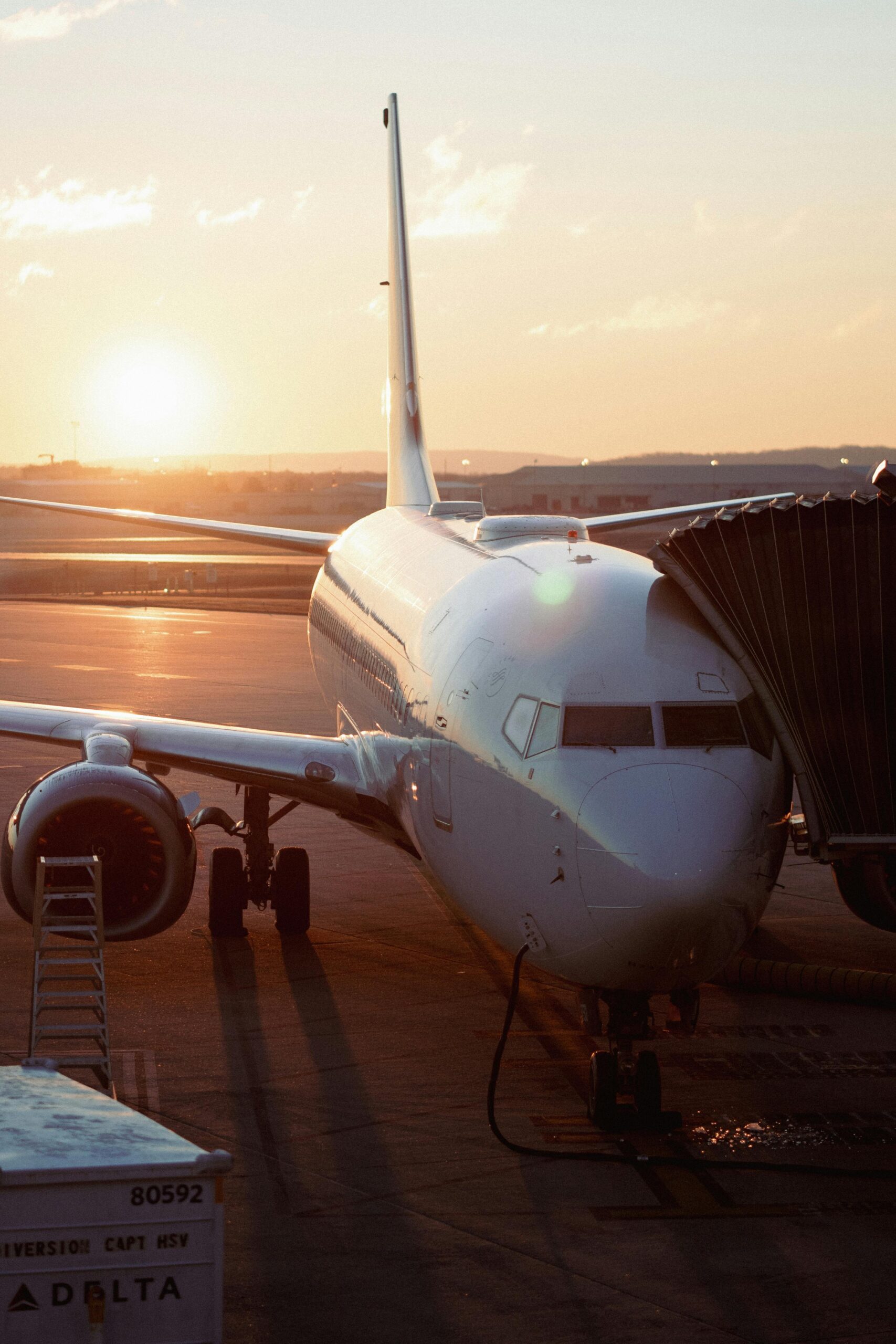
Leave a Reply